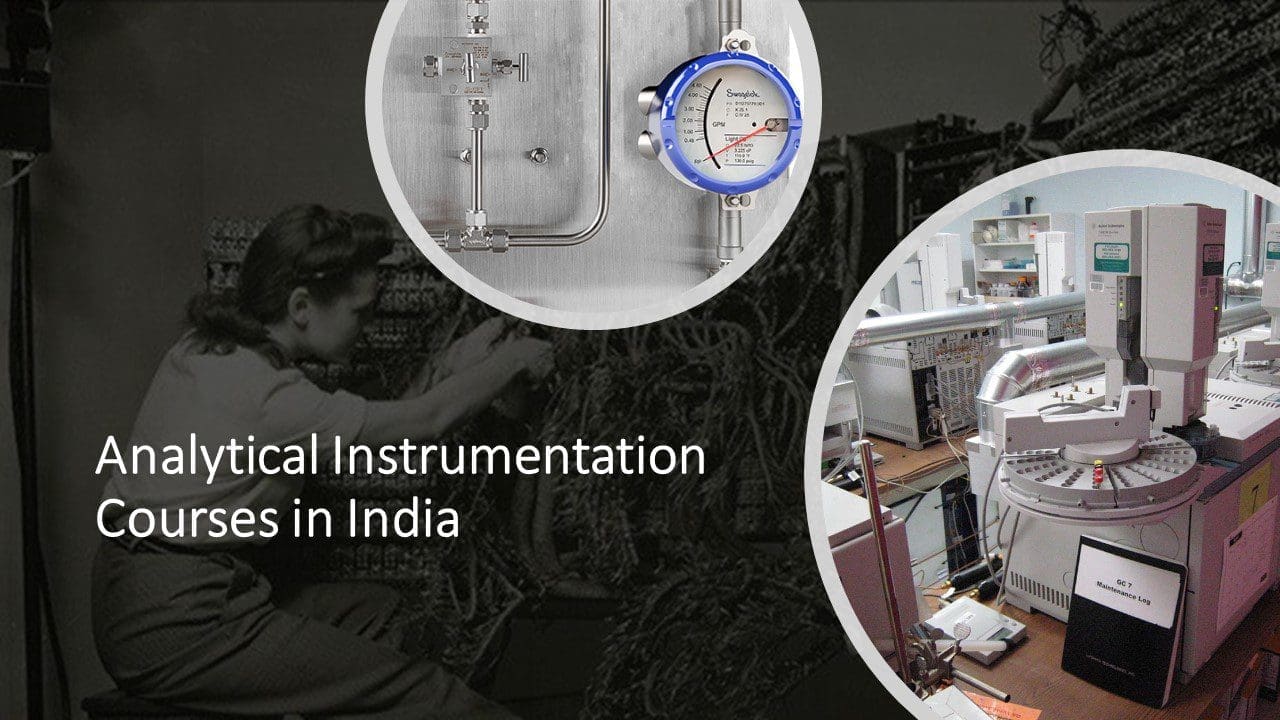
There has been tremendous growth in the chemical, biochemical, pharmaceutical, healthcare, forensics and metallurgical industry in the past couple of decades worldwide. Every day, increasing numbers of new compounds are being synthesized using innovative techniques by small and large R&D laboratories.
It is highly essential to understand the characteristics and QSAR of the new compounds. Hence, instrumentation in quality control labs has become vital for accurate characterization. It is also helpful in faster processing, analysis and testing of samples.
Any person who has successfully passed an analytical instrumentation course is certified and trained to ensure better quality by avoiding errors with accurate testing of samples using advanced analytical instruments.
Several leading testing laboratories have started providing post-graduate courses in analytical instrumentation in India in response to the growth of the industries mentioned earlier.
Tips to choose the best Analytical Instrumentation Course
Here are the top factors to look for before choosing an ideal course in analytical instrumentation in India:
Problem-based learning methods
Analytical chemists need to go through a list of questions when a new problem in analysis surfaces. The questions on the list usually relate to the nature of the sample, the analysis of interests, their levels, the quantity of available sample, interference potential, the type of analysis method to be used, etc.
It takes enormous practice to fine-tune this method of compound analysis. Leading labs provide students with problem-based experiments to refine their analysis and testing skills. The experiments are usually classified according to the instrument being used, such as:
- Gas chromatography
- Spectroscopy
- Liquid chromatography
- Materials analysis
Assessing lab activities
There are various reasons that make assessments of lab activities extremely important in instrumentation analysis. It is important for the student to be able to address the problems, as well as design and apply scientifically sound experiments while generating reports in various easy-to-read formats.
Balance between lab and lecture content and syllabus
An ideal course in analytical instrumentation should provide students with the opportunity to learn and use each of the various analytical instruments and equipment which is normally used for testing compounds in real life.
Thus, students need to ensure that the laboratory organizes the curriculum in a way that teaches the important practical background behind individual instrument-oriented tests in lectures before letting them experiment with the instruments in the lab.
Less lecturing and more practical learning
When students are taught the few essential and frequently-used testing methods they don’t need to read up on every experiment under the sun. This selective method of teaching ensures that the students have a better understanding of the fundamental principles of each instrument testing method which helps to experiment successfully in the practical lab.
The lecturers should give ample time to students to pose questions before starting every class. Normally, a presentation of around 30 minutes is deemed sufficient on any topic. The rest of the time should be dedicated to discussing and resolving challenges posed when performing the analysis experiment in the lab.
This technique is excellent to help students make informed decisions which are of great help when it comes to solving problems.
Bottom Line
Choosing to study an analytical instrumentation course is a huge decision on the student’s part. Thus, they need to check and ensure that the teaching institution has the most updated laboratory equipment and curriculum that adapts to the swift advances in the analysis industry.

Be the first to comment